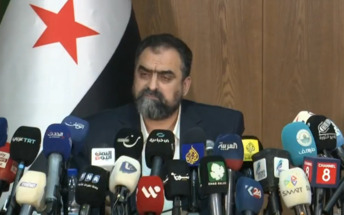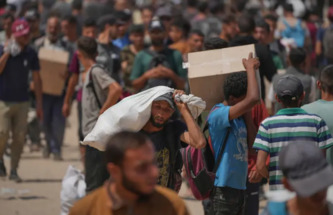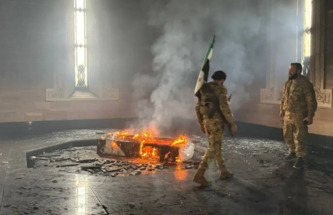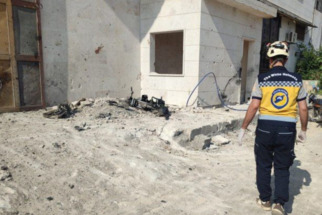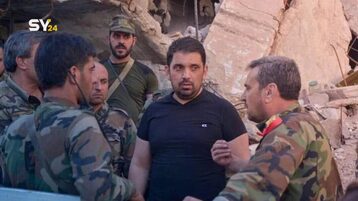-
HRW: Several hundred killed and maimed by landmines around Libyan capital in two years
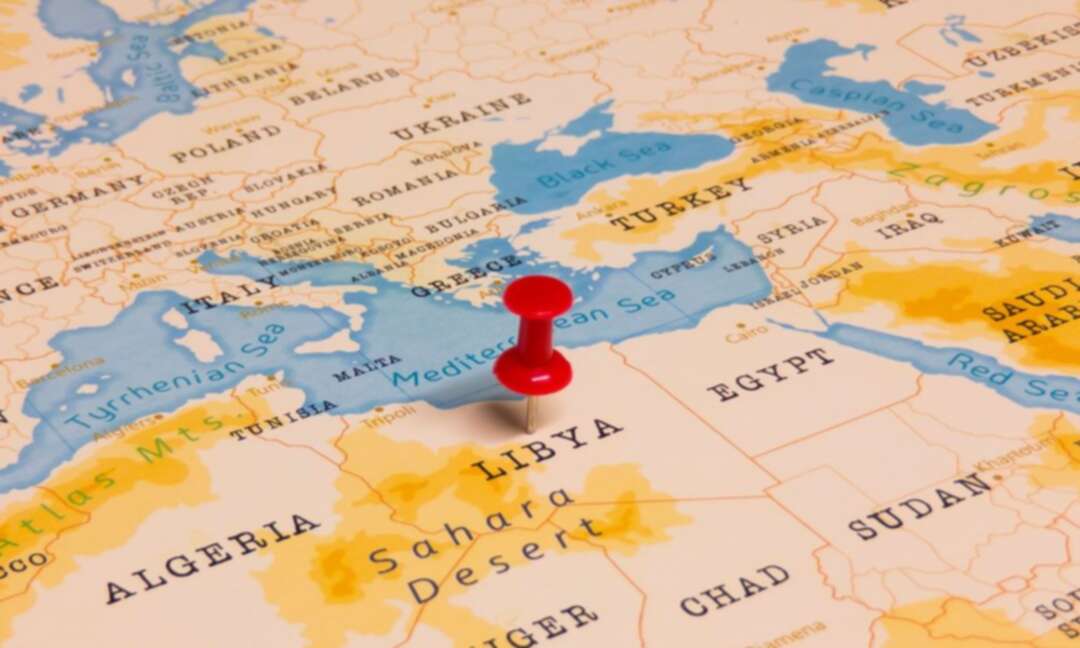
The Arabweekly reported, Human Rights Watch said Wednesday (Apr 27) that, at least 130 people, mainly civilians, have been killed by landmines and other explosives left after heavy fighting in 2020 around the Libyan capital.
The devices, including banned antipersonnel landmines and booby-trapped explosives, were scattered in the suburbs of Tripoli during heavy fighting in 2019-2020, when the powerful eastern-based military commander Khalifa Haftar tried to capture the capital.
While Haftar withdrew from Tripoli in June 2020, with Libya's rival camps signing a ceasefire later that year, the dangerous explosive legacy remains.
HRW's Libya director Hanan Salah said: "Forces allied with Khalifa Haftar laid landmines and improvised explosive devices that have killed and maimed several hundred civilians including children and hinder southern Tripoli residents from returning home."
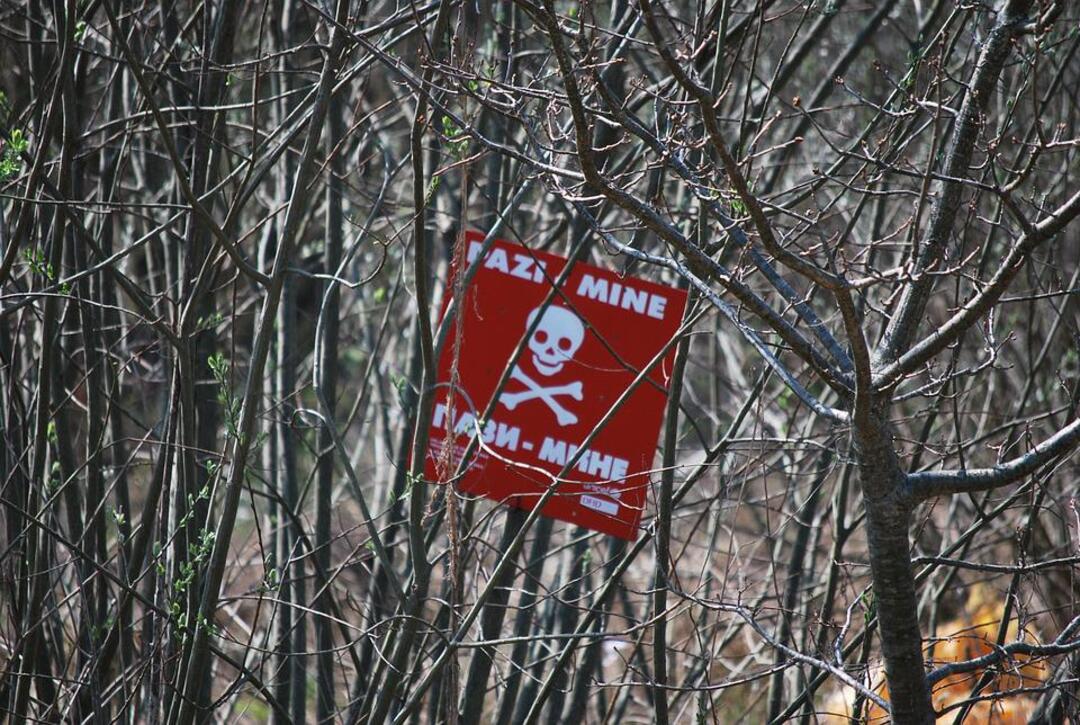
"Antipersonnel mines are banned because they indiscriminately kill civilians both during fighting and long after the conflict ends."
HRW, quoting figures from the defence ministry's Libyan Mine Action Centre, said at least 130 people had been killed, 200 people injured and thousands forced to leave their homes.
Germany will no longer train Libya's coastguard over migrants abuses
It calculated that landmines and other explosive ordnance had "contaminated" some 720 square kilometres in southern Tripoli.
The North African country was thrown into chaos after a 2011 NATO-backed uprising toppled and led to the killing of long-time ruler Muammar Gadhafi. Fighting drew in regional powers and foreign mercenaries.
Turkey sent in troops as well as pro-Ankara militia units from Syria to shore up the Tripoli government, while Russia's Wagner group deployed mercenaries backing Haftar.
UN investigators seek to verify mass graves for migrants at human trafficking center in Libya
Salah said: "So far, no commanders or Libyan and foreign fighters responsible for serious abuses during the 2019-2020 Tripoli war have been held to account. International action is needed for credible prosecutions to happen."
HRW said that clearing the landmines is a major challenge. As well as funding shortfalls and a lack of expertise, efforts to remove the landmines have been hampered by "fragmented governance and insufficient coordination among government agencies and humanitarian groups."
Libya remains split between rival forces, with two opposing executives in place since February.
Libya: The Question of Legitimacy
Earlier this month, a rival government selected by parliament in the east met for the first time, challenging a cabinet brokered by the UN and based in the capital Tripoli in the west.
Source: arabweekly
You May Also Like
Popular Posts
Caricature
BENEFIT Sponsors BuildHer...
- April 23, 2025
BENEFIT, the Kingdom’s innovator and leading company in Fintech and electronic financial transactions service, has sponsored the BuildHer CityHack 2025 Hackathon, a two-day event spearheaded by the College of Engineering and Technology at the Royal University for Women (RUW).
Aimed at secondary school students, the event brought together a distinguished group of academic professionals and technology experts to mentor and inspire young participants.
More than 100 high school students from across the Kingdom of Bahrain took part in the hackathon, which featured an intensive programme of training workshops and hands-on sessions. These activities were tailored to enhance participants’ critical thinking, collaborative problem-solving, and team-building capabilities, while also encouraging the development of practical and sustainable solutions to contemporary challenges using modern technological tools.
BENEFIT’s Chief Executive Mr. Abdulwahed AlJanahi, commented: “Our support for this educational hackathon reflects our long-term strategic vision to nurture the talents of emerging national youth and empower the next generation of accomplished female leaders in technology. By fostering creativity and innovation, we aim to contribute meaningfully to Bahrain’s comprehensive development goals and align with the aspirations outlined in the Kingdom’s Vision 2030—an ambition in which BENEFIT plays a central role.”
Professor Riyadh Yousif Hamzah, President of the Royal University for Women, commented: “This initiative reflects our commitment to advancing women in STEM fields. We're cultivating a generation of creative, solution-driven female leaders who will drive national development. Our partnership with BENEFIT exemplifies the powerful synergy between academia and private sector in supporting educational innovation.”
Hanan Abdulla Hasan, Senior Manager, PR & Communication at BENEFIT, said: “We are honoured to collaborate with RUW in supporting this remarkable technology-focused event. It highlights our commitment to social responsibility, and our ongoing efforts to enhance the digital and innovation capabilities of young Bahraini women and foster their ability to harness technological tools in the service of a smarter, more sustainable future.”
For his part, Dr. Humam ElAgha, Acting Dean of the College of Engineering and Technology at the University, said: “BuildHer CityHack 2025 embodies our hands-on approach to education. By tackling real-world problems through creative thinking and sustainable solutions, we're preparing women to thrive in the knowledge economy – a cornerstone of the University's vision.”
opinion
Report
ads
Newsletter
Subscribe to our mailing list to get the new updates!


